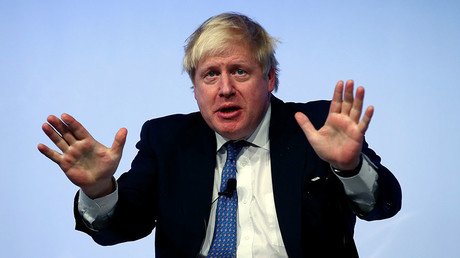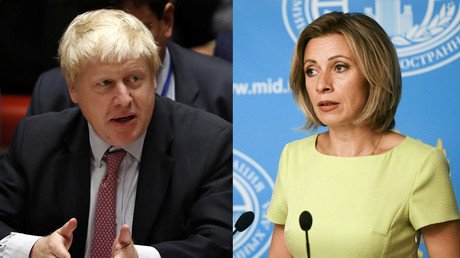UK accepts Assad could run for reelection, marking shift in Syria policy
UK Foreign Secretary Boris Johnson says Britain has changed its stance and now believes Syrian President Bashar Assad could potentially be allowed to run for president if there was a peaceful settlement of the conflict.
“It is our view that Bashar al-Assad should go, it’s been our longstanding position. But we are open-minded about how that happens and the timescale on which that happens,” Johnson told the Lords International Relations Committee on Thursday, according to The Guardian.
The statement came a day before British Prime Minister Theresa May meets with recently inaugurated US President Donald Trump in Washington, which means all sides interested in peaceful settlement of the long-lasting conflict in Syria could reconsider their views on the matter.
There is a need to be “realistic about the way the landscape has changed” and to take a fresh look at the situation, Johnson said.
“We are getting to the stage where some sort of democratic resolution has got to be introduced,” he added.
“I would hope it would be possible to have a plebiscite or an election which is properly supervised by the UN and in which all the 11 million displaced persons, including the 4 million who are outside Syria now, are fully entitled to vote," he said.
Among most important points on today’s agenda, Johnson named a clear understanding of “where the White House is coming from.”
“We need to understand how they see the endgame here, and we need to help shape that conversation, and some of the reservations we have, particularly about Iran,” he said.
Johnson stressed that cooperation with Russia would most certainly mean cooperation with Iran, Syria’s ally, which is likely to be “a good thing.”
“We think that trying to improve relations with Iran through this deal, and it’s a pretty cautious thing, is on the whole a good thing and we regard that as one of the achievements of the (former US President Barack) Obama administration.”
On the other hand, the foreign minister said that they “do not want to see is a further extension of Iranian policy and influence in the region.”
Johnson has not excluded the possibility of cooperation with Moscow. “If there is a possibility of an arrangement with the Russians that simultaneously allows Assad to move towards the exit and diminishes Iranian influence in the region by getting rid of Assad and allows us to join with the Russians in attacking Daesh (IS) and wiping them off the face of the Earth... then that might be a way forward,” he said.
The UK has long stuck to a different position regarding Syria's president, unambiguously stating that he “must go.” The same position has been repeated by the US and its allies which back the Syrian opposition and armed groups since the very beginning of the conflict.
In July 2016, newly appointed Foreign Secretary Boris Johnson argued that “the suffering of the Syrian people will not end while Assad remains in power,” adding that he could stay only for some time as part of a transitional government.














